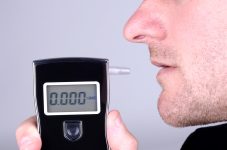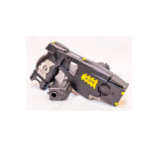Should Interlock Devices be Fitted to All Vehicles?

Getting behind the wheel in Australia means having to obey a whole host of traffic rules – but imagine if this included a mandatory breath test before you even turned the ignition!
While fitting an ‘alcohol interlock device’ may be part of the punishment for those convicted of serious drink driving offences, some believe that they should be compulsory for all cars – whether or not the owners have been convicted of drink driving.
Compulsory Interlock Devices
AustRoads is the association of Australasian road transport and traffic agencies. It researches and provides transport and road policy.
The organisation recently released a report advocating a far greater use of the interlock devices. It argues that fitting interlock devices to all cars would significantly decrease the number of deaths and injuries caused by drink driving.
The report recommends a staged implementation of a compulsory interlock requirement. The first to be targeted would be those who have been found guilty of drink driving, followed by truck drivers, school buses and taxis. P-platers would be next, and eventually all drivers would be required to fit the device.
If Australia was to implement this scheme, it would be the first country in the world to do so. The report notes that few countries impose such restrictions on those who have never been convicted of a drink driving offence.
But one country that does is Sweden, where all government vehicles and contractors must have the devices installed.
Austroads says that multiple classes of drivers could use a single device – logging in with a fingerprint, PIN or facial recognition technology. The device could thereby enforce different alcohol limits for different drivers; for example, zero limits for P-platers.
But some argue that an inherent problem with interlock devices is that a sober person can log in and blow into the device, then allow an intoxicated person to drive.
Current Law
Drink driving is the most common offence before the NSW courts, and alcohol is a factor in 20% of fatal car crashes in NSW.
All Australian states and territories, except Western Australia, have some form of interlock program for those convicted of drink driving. In NSW, those caught with a Blood Alcohol Concentration (BAC) in the high range (over 0.150) and repeat drink driving offenders must now fit an interlock device.
In Victoria, the rules are even tougher: anyone caught driving with a BAC higher than 0.07 can be required to install the device.
In NSW, 0.07 fits into the low range drink driving category and would not come under the mandatory interlock legislation. However, low range or mid range drink drivers can ask magistrates to consider placing them on an ‘alcohol interlock program’ to reduce their disqualification period.
Stored data from the devices can be used to evaluate whether the driver has complied with the interlock order.
There are currently three RMS approved brands of interlock devices:
- Guardian Interlock Systems,
- Draeger Safety Pacific, and
- Smart Start Interlocks.
Cost
Austroads says that vehicle owners should be responsible for the cost of interlock devices. But the cost of installation, monthly leasing fees and service fees is estimated to be around $2200 – which can push the cost of owning a car outside the budget of many low income earners, or add significantly to their cost of living.
In NSW, those who hold a concession card – such as a Pensioner Card or Health Care Card – may be eligible for a discount of 35% off the cost of compulsory interlock devices, and those with severe financial hardship can apply for short term financial assistance. But the cost can still be overwhelming for many.
Fairness
Those against compulsory interlock devices argue that ‘punishing’ everyone for the actions of a few is unfairly oppressive, and that the proposed scheme is yet another example of a ‘nanny state’ measure.
Those in favour argue that the benefits outweigh the costs, and that substantial concessions to low income earners could offset the financial impact of installing and maintaining the devices.
What are your thoughts?
Going to court for a traffic offence?
If you are going to court for a traffic offence, call or email Sydney Criminal Lawyers anytime to arrange a free first consultation with an experienced, specialist traffic lawyer who will accurately advise you of your options, the best way forward, and fight for the optimal outcome in your specific situation.
Receive all of our articles weekly
Author






